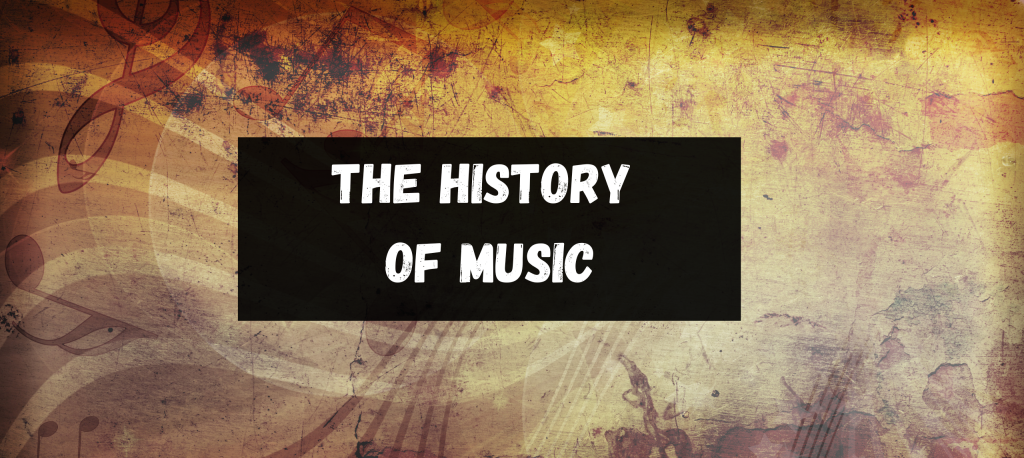August 23, 2023
Howard
Southern Rock music is a subgenre of rock music that originated in the American South, combining elements of rock, country, blues, and a hint of jazz. Characterised by its distinctive guitar riffs, soulful vocals, and often lyrical reflections of Southern life, it gained immense popularity in the 1970s, with bands like Lynyrd Skynyrd and The Allman Brothers Band leading the charge. Its influence has endured, leaving an indelible mark on the global music scene.
From the heart of the American South, a sound would define a generation and leave an indelible mark on the world of music. With its potent blend of bluesy roots, country twang, and rock ‘n’ roll spirit, Southern Rock emerged not just as another musical genre but as a cultural statement, a reflection of a time and place. As the hunger of the 1950s and 1960s raged on, the initial stirrings of this iconic sound began to reverberate, promising a musical journey unlike any other. So, prepare yourself for a deep dive into Southern Rock’s origins; believe us, it’s a tale you will want to experience.
The Golden Era
From honky-tonk bars to grandiose arenas, the 1970s witnessed Southern Rock music gripping audiences with its genuine blend of rock, blues, and heartfelt storytelling. This decade was the zenith of the genre, a time when Southern states made their musical mark domestically and saw their regional sound enchanting global audiences.
The 1970s: When Southern Rock Soared
The early 70s laid the foundational stones for the crescendo that Southern Rock was about to achieve. Bands of this era seamlessly weaved tales of Southern life—its beauty, challenges, and unique spirit—into their music. It was an authentic representation, resonating with listeners, of a modern South yet profoundly connected to its roots.
The Fusion with Hard Rock
The lines between hard rock and Southern Rock blurred as the decade progressed. Bands like Lynyrd Skynyrd combined powerful guitar solos, reminiscent of the hard rock sound, with the soulful lyricism native to the South. This fusion gave birth to anthems that had the weight and grit of hard rock but were laced with the authentic Southern narrative—an explosive and endearing combination.
The Most Notable Southern Rock Anthems of the 70s
Songs like “Sweet Home Alabama” by Lynyrd Skynyrd and “Ramblin’ Man” by The Allman Brothers Band were not just chart-toppers; they became the anthems of a generation. The poignancy of these tracks, combined with masterful musicianship, ensured they were etched into the annals of rock history. And as the decade rolled on, the influx of iconic tracks only grew, solidifying the 1970s as the golden age of Southern Rock.
Evolution and Persistence
As the glitz and glam of the 1980s dawned, Southern Rock, like many genres, found itself at a crossroads. Facing the burgeoning popularity of electronic music, new wave, and glam rock, the earthy tones and tales of the South had to evolve, adapt, and yet remain authentic to its roots. It was a challenging tightrope to tread, but the enduring spirit of Southern Rock showcased its ability to meld with the times, ensuring its persistence into the 90s and beyond.
The 1980s and 1990s: Adapting to Changing Times
This period was marked by a kaleidoscope of musical genres taking centre stage. Yet, while acknowledging contemporary trends, Southern Rock bands always retained their essence. Many adopted synthesisers and experimented with sound engineering, subtly incorporating these into their soundscapes. Bands like 38 Special infused more radio-friendly pop elements, while others flirted with the raw edge of grunge while ensuring their Southern identity remained at the core of their creations.
Broadening Influences and Their Impacts
The late 80s and 90s saw a range of genres, from alternative rock to hip-hop, dramatically transforming the music scene. Southern Rock, not to be left behind, imbibed elements from these genres, resulting in a richer, more diverse sound. This broadening of influences led to collaborations, cross-genre experiments, and a rejuvenated fan base. A new generation of listeners began to appreciate the genre’s adaptability, securing Southern Rock’s place in the musical tapestry of the time.
The New Millennium’s Beat
The turn of the millennium heralded an era of retrospection and reinvention in the music world. Amidst the digital revolution and the rise of indie genres, Southern Rock faced the challenge of preserving its storied legacy while resonating with a new, tech-savvy generation. As it always had, the genre responded with a blend of homage and innovation, ensuring its melodies echoed both the evocative past and the pulsing present.
Southern Rock in the 2000s and Beyond
In the 21st century, Southern Rock continued its voyage, making inroads into modern musical landscapes. While remaining true to its roots, the genre embraced modern recording techniques and digital platforms and even dabbled in digital sampling. This era also saw a resurgence of interest in vinyl records and analogue sounds, offering purists a taste of the original Southern Rock spirit. Bands like Drive-By Truckers and Blackberry Smoke emerged, paying respect to the old guard while introducing innovative elements to appeal to contemporary listeners.
The Blending with Country Tones
One of the most noteworthy evolutions of Southern Rock during this period was its symbiotic relationship with country music. The two genres, always cousins in theme and tonality, began to coalesce even more. Country stars like Blake Shelton and Miranda Lambert borrowed heavily from the robust guitar riffs and soulful narratives of Southern Rock. Conversely, Southern Rock bands adopted the lyrical depth and storytelling prowess of country ballads, resulting in a musical blend that was both fresh and hauntingly familiar. This cross-pollination enriched both genres, ensuring their collective growth and resonance with audiences worldwide.

Southern Rock’s Heavier Side
While the melodies of Southern Rock have traditionally evoked images of swaying porches and sunlit fields, a grittier, more brutal branch emerged from its roots, proving that the South had both soul and steel. This intersection of raw power and the deep-seated emotion of Southern Rock gave rise to a subgenre that resonated with fans seeking a bit more edge in their auditory experience.
Exploring the Branch of Southern Metal
Southern Metal, as the name suggests, is a compelling blend of the traditional storytelling narratives of Southern Rock with the sheer power and aggression of heavy metal. It’s a genre where ripping guitar solos meet raw, emotive lyrics, resulting in a fierce and evocative sound. Bands like Down, Corrosion of Conformity, and Crowbar rose to prominence, with their tracks resonating with the deep roots of the South while capturing the global metal ethos. Their music embodies the South’s tumultuous history, rich culture, and the universal rebellious spirit of metal. For those eager to explore an alternative dimension of Southern Rock, delving into the intense world of Southern Metal offers a thrilling ride.
Flagbearers of the Genre
Delving into the heart of Southern Rock, one can’t help but be swept away by its leading figures’ sheer force and passion. Through their innovative melodies and powerful narratives, these artists have defined the genre, leaving an indelible mark on the world of music.
Profiling Key Bands and Artists:
As we traverse the vast landscape of Southern Rock, let us take a moment to spotlight the bands and artists who shaped its contours, influenced its trajectory, and continue to echo its legacy in today’s music scene.
- The Allman Brothers Band: Pioneers and Innovators: Heralded as one of the pioneering forces behind Southern Rock, The Allman Brothers Band’s synthesis of blues, jazz, and rock elements crafted a unique sound that reverberates today. Their intricate guitar harmonies and improvisational performances set a benchmark for live concerts and solidified their status as genre stalwarts.
- Lynyrd Skynyrd: Rocking the South and Beyond: With anthems like “Sweet Home Alabama” and “Free Bird”, Lynyrd Skynyrd became synonymous with Southern Rock and the spirit of the South itself. Their powerful lyrics and iconic guitar riffs encapsulated the region’s ethos, making them one of rock history’s most celebrated and influential bands.
- Diverse Sounds: From Ozark Mountain Daredevils to ZZ Top and Beyond: The beauty of Southern Rock lies in its diversity. Bands like Ozark Mountain Daredevils added a touch of country, while ZZ Top brought forth a bluesy, boogie-driven sound, showcasing the vast range within the genre. This eclectic blend has ensured Southern Rock remains fresh, dynamic, and ever-evolving.
- Contemporary Torchbearers: Drive-By Truckers, Jason Isbell, and More: The legacy of Southern Rock is not confined to its golden era. Contemporary artists like Drive-By Truckers, with their narrative-driven songs, and Jason Isbell’s poignant lyricism prove that the genre is alive, thriving, and continues to inspire a new generation of musicians. Their modern take pays homage to the roots while infusing fresh perspectives, ensuring the timeless allure of Southern Rock.
The Music That Defined Generations
With its earthy tones and raw passion, Southern Rock has been the soundtrack to countless life moments for many. This genre has resonated deeply, from sun-kissed summer days to reflective winter nights, creating memories and connecting generations.
A Dive into Essential Southern Rock Classics
It’s often said that to understand Southern Rock’s spirit truly, one must immerse oneself in its quintessential tracks. These are not just songs but anthems—soulful expressions that have captured the essence of an era, articulated emotions, and narrated stories that are deeply personal and universally relatable. Join us on this musical journey as we explore the iconic melodies, riffs, and lyrics that have not only defined Southern Rock but also enriched the tapestry of global music.
Characteristics and Distinctiveness
From the Deep South’s sultry sounds to the guitar’s twangy tones, Southern Rock has its own distinctive identity. But what makes this genre stand out in the vast rock ‘n’ roll ocean? Let’s delve into its unique nuances and explore its undeniable connections with another beloved genre, Country Rock.
What Makes Southern Rock Unique?
At its heart, Southern Rock is a harmonious blend of blues-infused rhythms, rock ‘n’ roll energy, and storytelling that draws inspiration from the American South’s rich tapestry of history, culture, and tradition. It’s not just about the instruments or melodies but the emotions they evoke—capturing the spirit of rebellion, freedom, and Southern pride. This genre often ventures into long instrumental breaks, allowing for intricate guitar solos and a chance for each musician to shine, evoking the essence of the Southern landscape and its soulful legacy.
Tracing its Links with Country Rock
While Southern Rock firmly roots itself in the rock domain, it’s impossible to overlook its kinship with Country Rock. Both genres share a storytelling penchant, often weaving tales of love, loss, and longing against the backdrop of the American landscape. Yet, while Country Rock tends to embrace more traditional country elements with a rock twist, Southern Rock amps up the rock attitude, marrying it with a distinctly Southern flavour. Still, the symbiotic relationship between these genres showcases the versatility of rock music and its ability to morph and adapt, drawing influences from varied regional sounds.

Albums, Artists, and Anthems
The expansive universe of Southern Rock is studded with albums that have shaped the genre and left an indelible mark on the broader music landscape. From the power-packed performances of iconic bands to the soul-stirring ballads from lesser-known artists, this section shines a light on the masterpieces that every Southern Rock fan should know.
Highlighting Key Albums and Timeless Songs
Every journey into the heart of Southern Rock is complete with paying homage to the albums that have defined generations. These records, a mosaic of sound, tell tales of the South’s sprawling landscapes, vibrant cities, and the people who call it home. Tracks like Lynyrd Skynyrd’s “Free Bird” and The Allman Brothers Band’s “Ramblin’ Man” have become anthems, their riffs and lyrics echoing across time and space. But these classics are just the tip of the iceberg. A wealth of music is waiting to be discovered that tells the story of the South, its triumphs and tragedies, its hopes and heartbreaks.
Venturing Beyond the Mainstream
While the big names in Southern Rock have rightly earned their place in the spotlight, there’s a vast underbelly of lesser-known artists and albums that offer a fresh and nuanced perspective on the genre. These hidden gems, away from the mainstream’s glare, are where innovation thrives, blending traditional Southern Rock elements with contemporary sounds, pushing the genre’s boundaries, and ensuring its legacy lives on. Dive deep, and you might discover your next favourite track or artist, a testament to Southern Rock’s enduring and evolving spirit.
Conclusion
From its humble origins in the American South, Southern Rock has swelled into a genre that’s touched hearts and inspired artists far beyond its regional borders. As our exploration draws to a close, it’s imperative to look back, not just with nostalgia but with a sense of understanding and appreciation for how this unique musical style has left its stamp on global sounds.
At its core, Southern Rock is more than just a musical genre; it’s a narrative of a place, its people, and the myriad emotions they’ve navigated over decades. This narrative, drenched in soulful guitar riffs and heart-wrenching lyrics, has found resonance not just in the sweltering American South but also in the rainy alleyways of London, the bustling streets of Sydney, and beyond. Such is the universal appeal of stories told with sincerity. The genre’s legacy is ensured as newer bands take the torch and infuse modern sounds into the classic Southern Rock formula. It’s a testament to its adaptability and relevance that even today, Southern Rock continues to captivate, inspire, and unite listeners worldwide. The future holds the promise of more ballads, more anthems, and more tales waiting to be sung, ensuring that the story of Southern Rock is far from over.
Wondered, what is rock music?
Corr, You Love Reading Don’t You

Howard Head
I turn confused bass enthusiasts into bass gods through a simple and logical process.

















